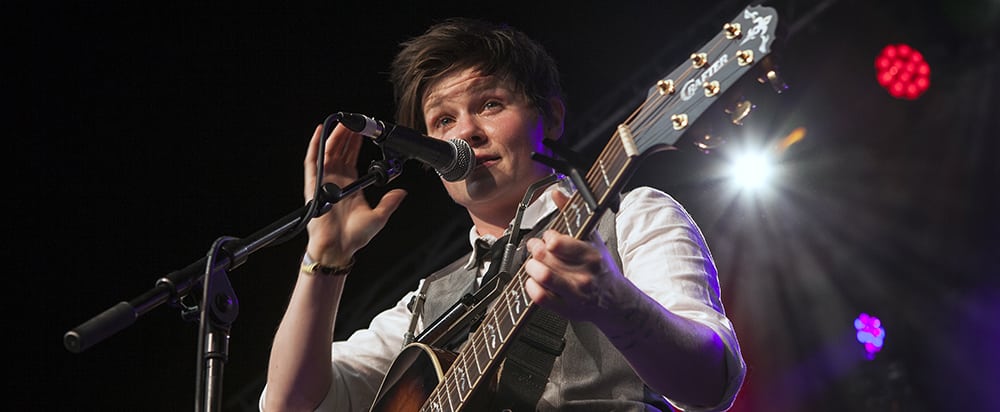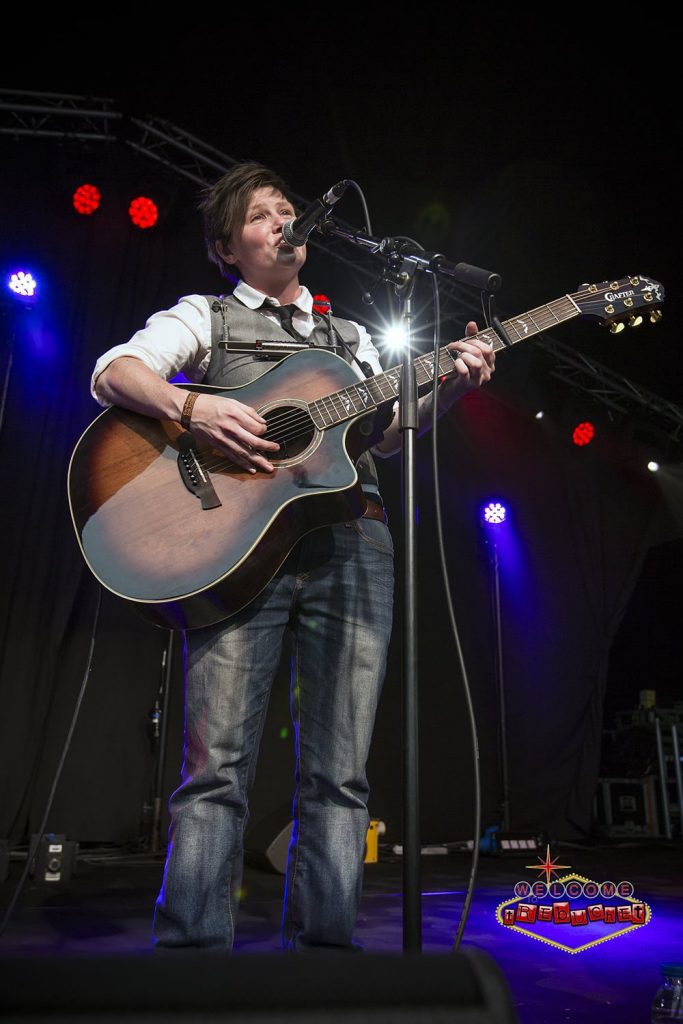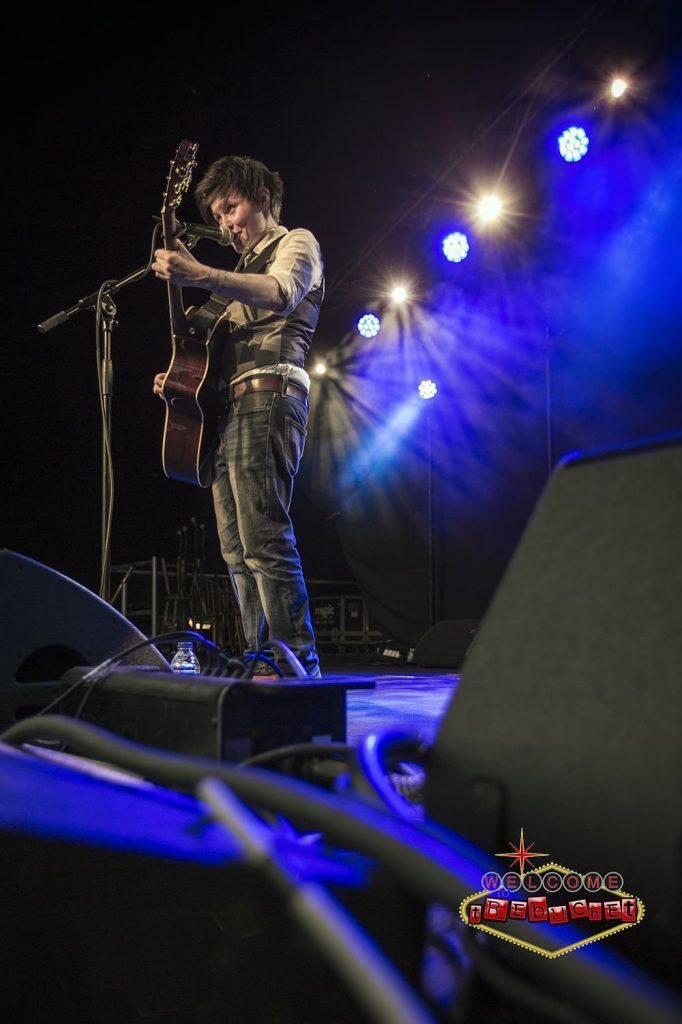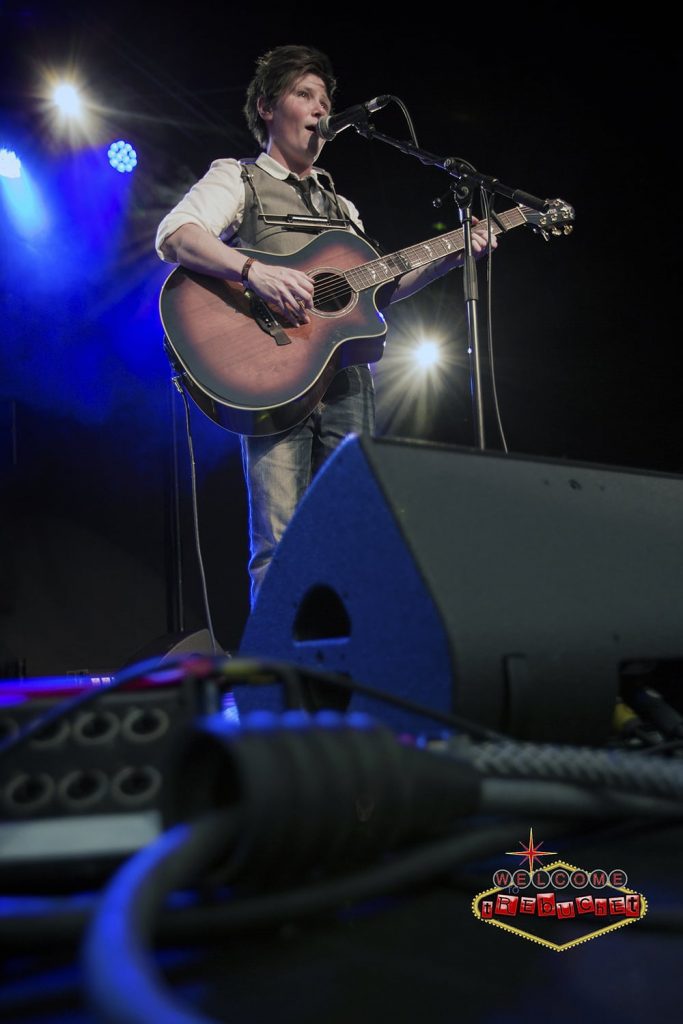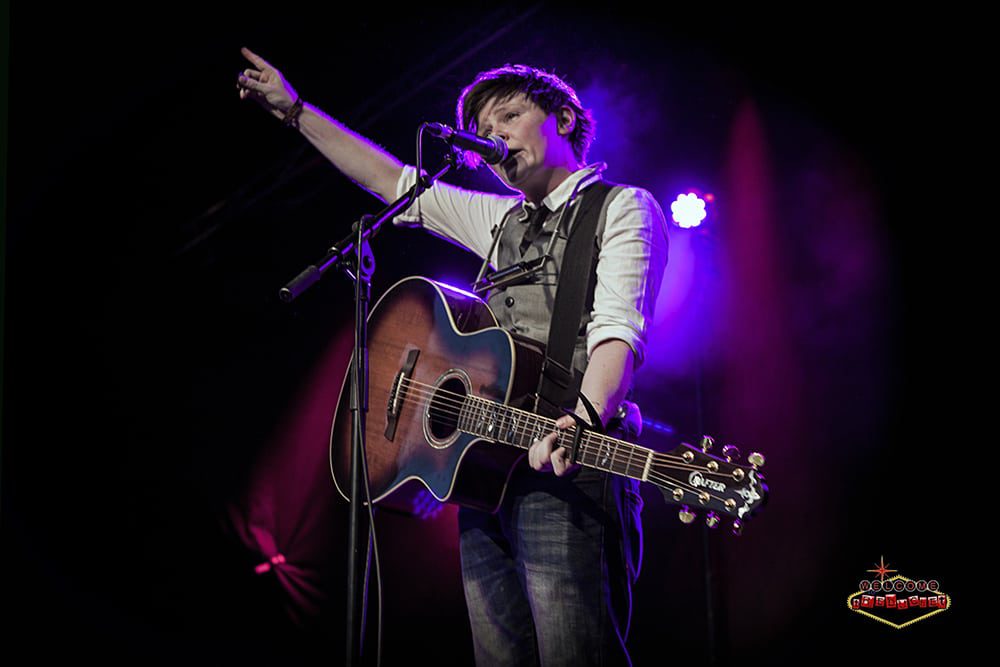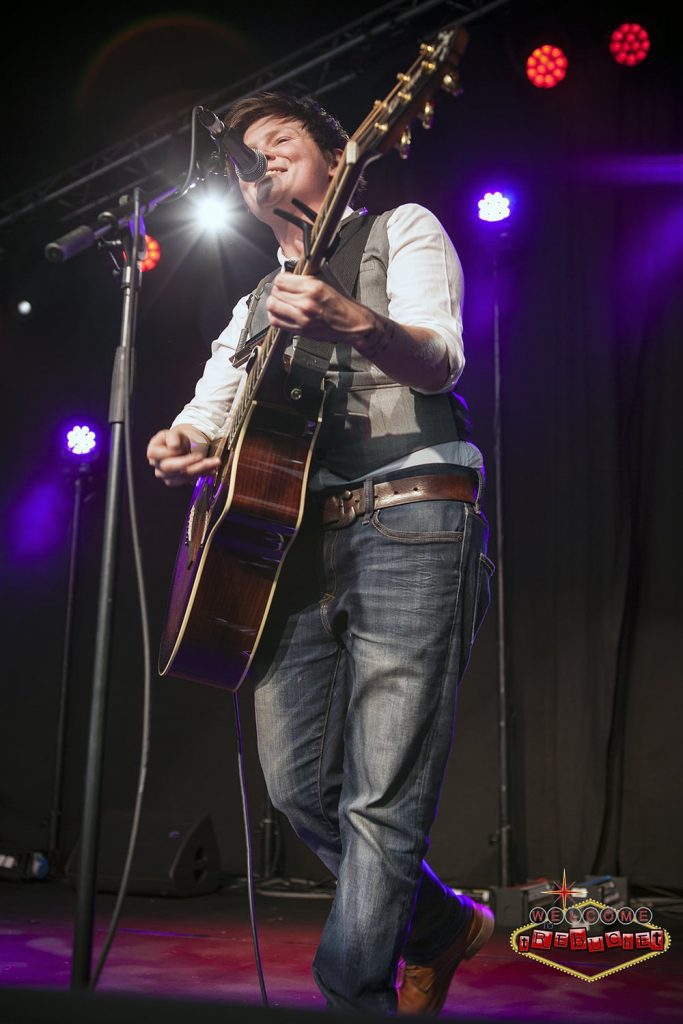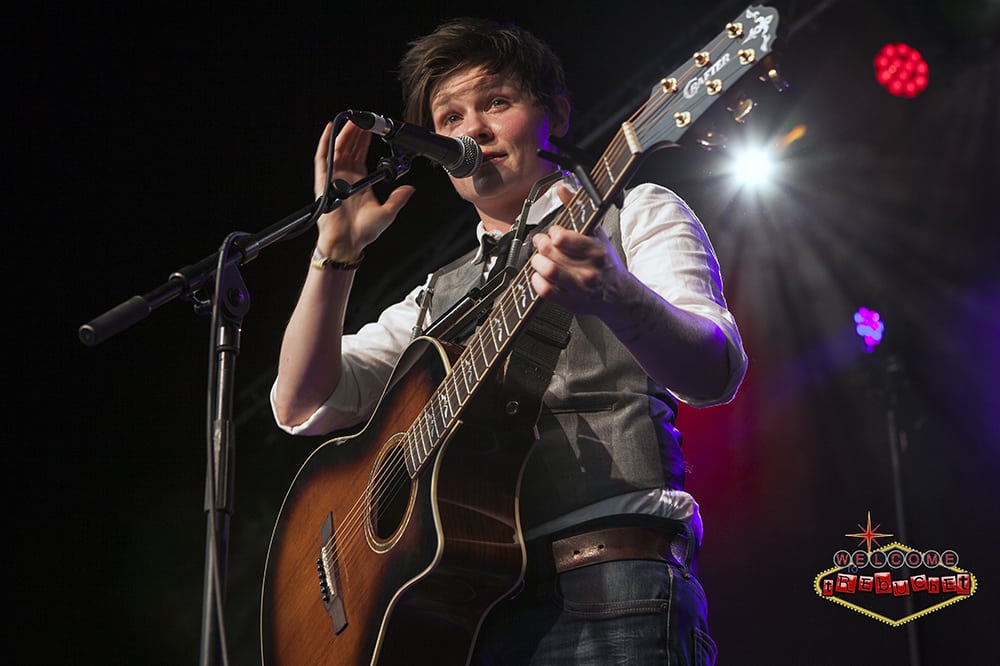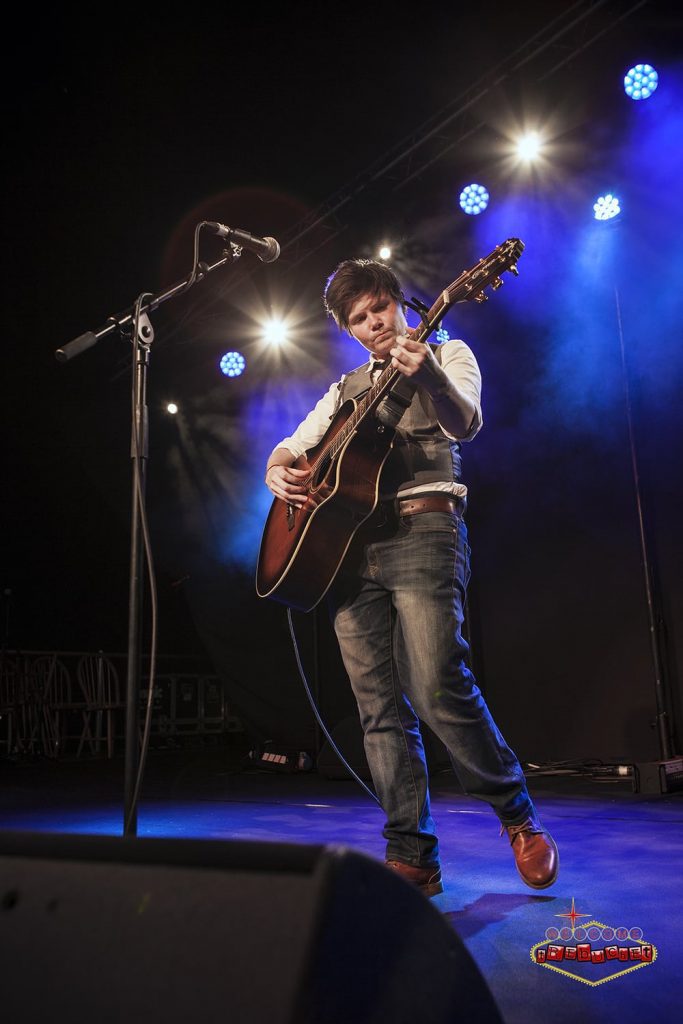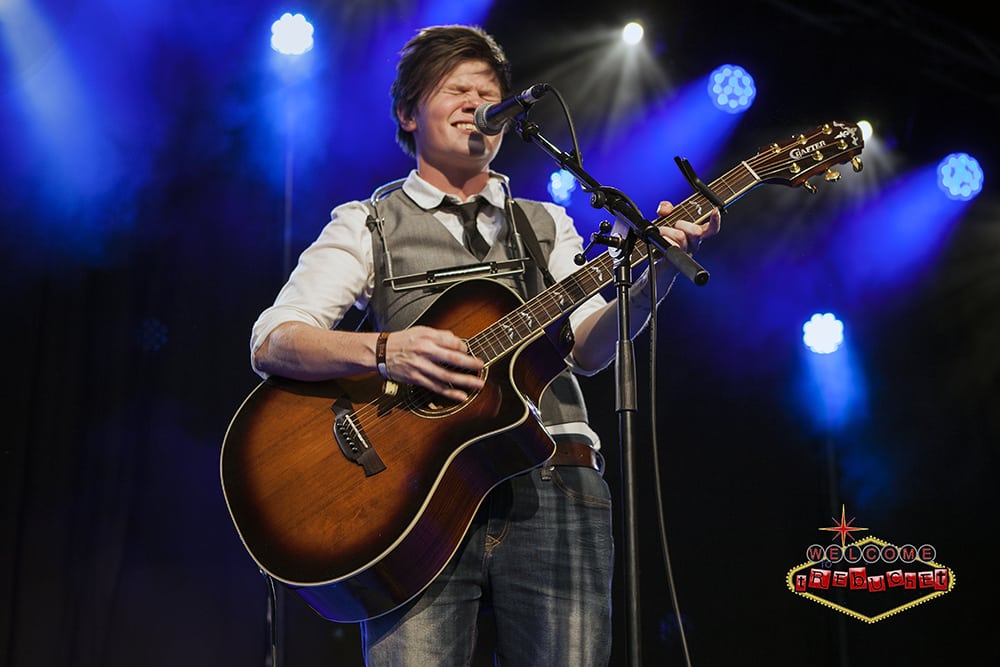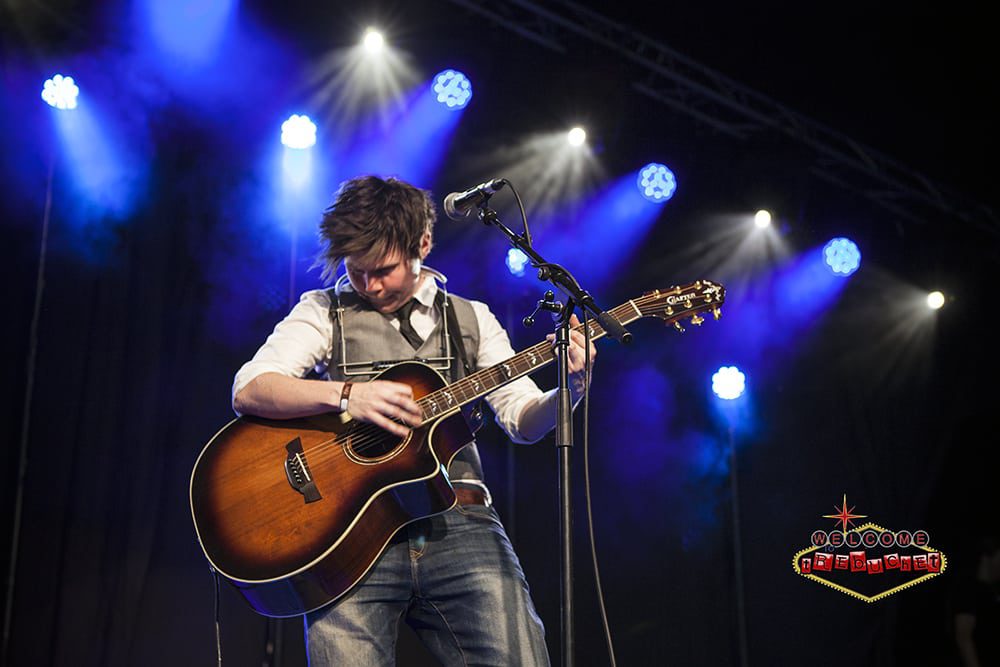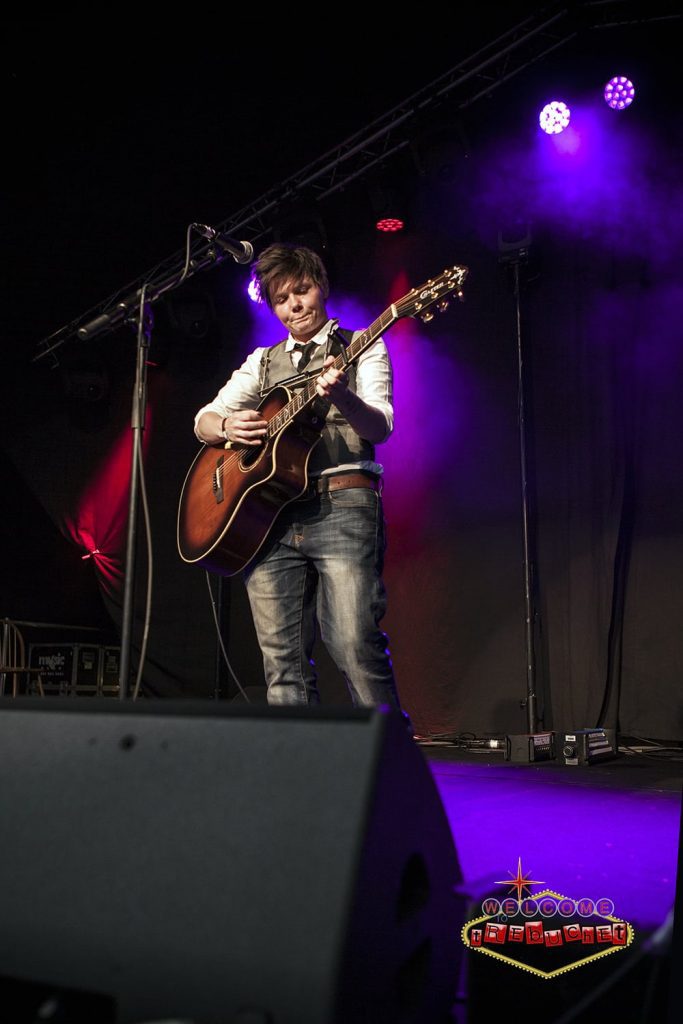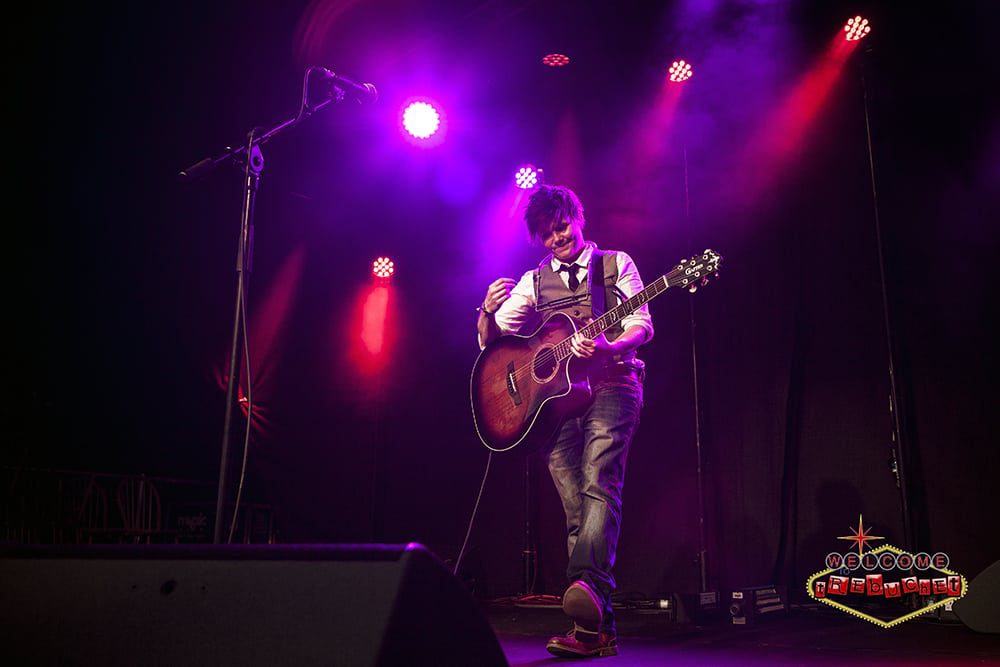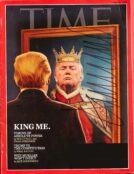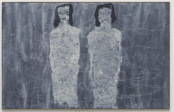Sarah Corbett-Batson: To what extent do you feel that you’re preaching to the converted?
Grace: What is the converted these days? I tell you, I can’t remember another time in my life that I’ve felt like the British public were more divided on anything. We just had a major referendum, the result of which was essentially 50/50 and those two positions are so polarised. It’s certainly not the case that all left-wing people voted Remain and all right-wing people voted Leave. It’s like the issue that we were just discussing, transphobia. I don’t think it is very prevalent or very widespread but I have had people come up to me at my gigs and take issue with me about it.
Certainly I’ve had a lot of people take issue with me about Corbyn. There are still a lot of Labour members who aren’t convinced about Corbyn. But I don’t see my job as preaching to anyone. I write about things that move me. Music for me is an emotional outlet. It always has been and it was long before it was anything to do with politics. It’s just that I’m involved with politics and I’m interested in politics and I think that politics is unavoidable these days. The politics that we’re seeing, the times that we live in, I don’t think it’s possible to be apolitical when you see what’s happening right now.
The only thing that I’m ever trying to do with a song, ever, is comfort myself basically. I write songs that are an expression of how I feel. A lot of them are about love and the relationships that I have in my life, some of them are about what I see on the news and what makes me feel things politically. If I can make anyone in a crowd feel less on their own by something that I’ve written then that is amazing, that’s a bonus.
The most important thing is realising that an individual can make a difference. I think it’s very easy these days, if you believe what you read in the papers and what you see on the news, to get completely and utterly cynical and just feel like, what is the point in even trying to help anybody, what’s the point in even trying to make anything better because one person can’t make a difference, but the truth is, there are so many more people who want things to be more equal in Britain and in the world at large than the system would have you believe.
I know I use that word ‘system’ and it does make me sound like a conspiracy theorist but I do think the way that our whole system is set up is definitely not representative. It’s very easy if you live in a Tory safe seat or what have you, to feel like you’re just one person, how can you make a difference but the beauty of what I’ve discovered in my line of work if that I can put a song on the internet and I can have it reach anyone all over the world within seconds. Then suddenly you can see other people responding to it and you can see that a lot more people think this way than you first thought, it’s not just me.
All I’m every trying to do is offer, and it is a clichéd left-wing word but we need it more than ever, I’m trying to offer solidarity. That’s what I’m trying to do in my songs, that’s what I’m trying to do in my shows. I work hard to try to make my gigs as inclusive as possible, that’s very important to me.
I’ve been very lucky to have some incredible guests on this record
People are going to disagree with me and that’s totally fine. As I said, we’re a broad church. The criticism that irritates me the most is the idea that the Labour Party has become a personality cult and I don’t think that’s true at all. As I said earlier on, I can take or leave Jeremy Corbyn; it’s the politics that I’m bothered about. On the whole, the Labour Party is a vehicle that I can support for the first time in my life in good conscience. I can go out to people younger than me and I can sell it to them in good conscience.
I’ve never had a Labour Party that I can bat for before and not say, sure vote for them with your teeth gritted or while holding your nose. I don’t have to say that any more. I really think that if this Labour Party got into power, things would be a lot better for most people in this country than they are now. I get a lot of pushback still and that’s fine. It would be an easier job if I was preaching to the converted but I think it would be a more boring one as well.
How easy do you find it to balance the general and the particular in your songwriting?
Grace: I often think that they dovetail quite well together. The political is always personal and vice versa but I think that the way to people’s hearts is individual stories. I think we all know that to be true. The refugee crisis was going on long before that infamous picture of that little boy washed up on the shore and suddenly everybody couldn’t rest until we did something about it.
It’s exactly the same thing with the Repeal the 8th Campaign in Ireland. Studies have found that people who changed their minds from voting no to voting yes, the majority of them said that their minds had been changed by somebody telling a personal story of something that had happened to them. Once you can hang that onto an individual and once you can put yourself in somebody else’s shoes, it makes the political ideology a lot more accessible.
I think with the transgender issue too, it’s very easy to dehumanise someone when they’re part of a group, when you think of them as this statistic, but as soon as you have anyone in your life who is transgender, suddenly they’re a real human being and suddenly talking about their rights is not this hypothetical situation. Suddenly it’s like, this is what would happen to my friend if these rules were to change or if these rights were to be taken away. As a songwriter, it’s a great string to have to my bow, to try to convey these huge ideological ideas in personal ways. They’re always the stories that chime with people the most.
[youtube https://www.youtube.com/watch?v=dUb8DDX0JDQ&w=560&h=315]
There’s a song on my new record, which is about an 81 year old man who I had the good fortune to meet. He was one of the most flamboyant and interesting people I’ve ever met and he was talking to me about his late housemate who died 20 years ago and he couldn’t stop talking about this man and it became very obvious to me that he had been in love with this man but that was a love that had never been verbalised in any way. I couldn’t shake this story and I wrote a song about it. When I’ve played it at shows, so many people have said to me that it’s something that has really spoken to them and really touched them. That is definitely a political song.
My whole identity as a person is a political thing. In an ideal world it shouldn’t be and, as I say, I’m sure that one day it won’t be, maybe not in my lifetime. But as an openly gay woman, as a masculine woman, as a butch lesbian, that is a political identity. When I sing about these things that are real stories from my life, that is a political thing and I can’t escape that in the way that a straight artist singing love songs is far less of a political thing. Even just me singing love songs about women is in some way taking a stand. It’s nailing some kind of colours to the mast.
Of course that’s something that a lot of lesbian and gay artists haven’t felt able to do in the past – George Michael, for example, always sang love songs using the female pronoun.
Grace: Definitely and even more recently than that, Will Young even after he came out was singing a song with female pronouns in it – I remember thinking, what is that about? I mean it was high profile when Will Young came out. So in the mainstream pop industry there is much further that we have to go.
When I first started singing songs about women, or girls as I was a teenager then, I was singing about girls that were in my life and I never saw that as a political thing. I was very lucky that I was given the kind of upbringing where I was always very much encouraged and supported to be who I am. Then when I started gigging, people came up to me and said, I think it’s really brave that you’re singing love songs about girls. I just thought, why would I sing love songs about boys? I’m not in love with boys. So personally I find it easy but I think that’s because my personal identity is a political thing for me. I think it always has been and I imagine it always will be.
When you played here (Cambridge Folk Festival) on Thursday, you were on your own rather than with your band. What are the reasons behind that and will it be the same for the tour in the autumn?
Grace: To be confirmed, to be honest. I’ve been very fortunate to play with the musicians that I’ve played with in my life. For many years, my band was Caitlin Fieldand Jess Greengrass. They are very, very dear friends of mine, my best friends really. They have full-time jobs whereas I drive around and strum my three chords for a living. Those guys are amazing. Caitlin has just qualified to be a French teacher and Jess has just had a baby so both of them have got quite full plates at the moment. We’re still trying to fit in the odd gigs here and there and they’re both playing with me at Greenbelt Festival in Northamptonshire at the end of August. Caitlin just came to Canada with me; sometimes we just do a duo, me and her. So we try to change the line-up to accommodate what they’re doing. I love playing with those guys and it keeps me sane definitely to be on the road with such good friends.
I really try to give everything
I’ve been very lucky to have some incredible guests on this record. I’ve got Nancy Kerr playing the fiddle, I’ve got Miranda Sykes playing the bass, I’ve got Hannah James playing the accordion and if any of those guys are around and free for any of the shows then it would be a dream to recreate some of that live.
Looking to the future, to next year, a lot of the songs on this record are really big songs and I can’t recreate them on my own. I enjoyed being up on that stage at Cambridge on my own but I look to these bigger stages and I think it would be so much fun to try to do justice to that record and the way that the songs are written with this great big, huge big band feel so it’s a changeable feast I think. I love playing with other people, apart from anything else it gets kind of lonely on the road on your own. I spend quite a lot of time in my own company so it would be great to try to make some full band shows happen.
If all else fails, if nothing else comes off, I always do a full band show in London at Christmas; I call that Lefty Christmas. We did it last year and it was amazing. We’re doing it at Bush Hall (in Shepherd’s Bush, London) so there will definitely be a big band turnout for that.
Do you get much songwriting done on the road?
Grace: It’s funny how it happens. I can’t quantify my songwriting one way or the other. Sometimes it’s so quick, I’ve written songs in half an hour and that’s been their final draft and they’ve stayed like that the whole time. Then I’ve got songs that literally have taken me three years. Sometimes it’s the idea of a political issue that’s knocking around my head and stays there for ages. Sometimes it’s something like the elderly gentleman that I met, that I spoke about earlier. That was something that I wasn’t really looking for and then the idea took hold of me and I couldn’t stop thinking about it until I’d written the song. It was like exorcising a demon or something.
I wouldn’t say that I necessarily enjoy touring because the first couple of nights I’ve got 100% to bring to the show and then after that I just start to get very tired, it’s a tiring lifestyle. Also I find that if I spend too many nights away from home then it starts to make me feel a bit mad. The songwriting for me is feast or famine – either I’m writing so much that I can’t contain it or I’ll go months and months and there will be nothing. With touring, most of the time I’m too spent to write songs. I really try to give everything I’ve got to the show and then the rest of it is just driving and trying to stay alive enough to bring enough of yourself to the next show.
You’ve got the album and tour coming up, what are your plans beyond that or is that as far as you’re looking at the moment?
Grace: Well I’d compare making an album to, and my sister would probably be offended because she’s gone through this, but I’d compare it to childbirth. I think you make a record and it’s so hard, I find recording very difficult. It’s the worst part of the job for me. If I could gig and never record again for the rest of my life, I would take that in a heartbeat. What I get from this, everything that I get from this is about engagement with the audience. That’s what I feed off, it’s what fuels me, it’s what sustains me, it’s the whole reason I’m in the game.
Recording is always very difficult for me. I think also it holds under the microscope that I would probably describe myself as a performer before I would describe myself as a musician. I think I’m somebody who is supposed to be seen live. You can’t really hide behind jokes and what I might arrogantly describe as likeability on a CD, it’s got to be right. So at the moment I’m in that phase where I never want to do that again but having said that, there are already two or three songs that I’ve written since this record was finished. It’s frustrating to me that I can’t just get them straight out.
I’ve recorded six albums in the last six years so I could sit here and say to you that I’m going to leave it three years but I imagine I won’t. I’ll probably be back at it next year. Again that is part of the nature of writing songs about politics – the world moves, the world changes. The things that I’m responding to this year are completely different to the things that I was responding to last year. That can be a challenge because records last forever. There are songs that exist on record that have completely different political views than the ones that I have now.
Broadly ideologically I’ve stayed the same but I mean I literally wrote an entire record about how everyone should leave Labour, that’s what I did in 2015. The whole point of that record (Whatever’s Left) was that we should all leave Labour and join the Green Party and now look at me – I campaign for Labour, I gig for Labour. So who knows what’s going to happen, maybe next year I’ll be a LibDem! But I doubt it!
Grace Petrie played Cambridge Folk Festival 2018 on Thursday, 2nd August.
Her album Queer as Folk is released on 14th September and is followed by a tour of the UK and Ireland in October. For tour dates click here.
The first part of this interview here.
Cambridge Folk Festival review here.
Interview by Sarah Corbett-Batson
Photographs copyright Carl Byron Batson – not to be reproduced or used without express prior written permission

